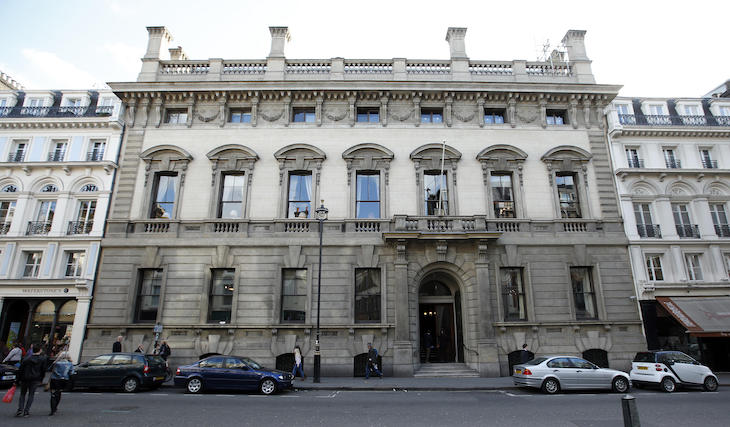The members list of the men-only Garrick Club in London’s West End has remained a closely-guarded secret – until now. King Charles, Richard Moore, the head of MI6, and Simon Case, the cabinet secretary, have been named as members of the club after the Guardian revealed what it called ‘the roll call of (the) British establishment’.
Already a subscriber? Log in
Subscribe for just $2 a week
Try a month of The Spectator Australia absolutely free and without commitment. Not only that but – if you choose to continue – you’ll pay just $2 a week for your first year.
- Unlimited access to spectator.com.au and app
- The weekly edition on the Spectator Australia app
- Spectator podcasts and newsletters
- Full access to spectator.co.uk
Or




















Comments
Don't miss out
Join the conversation with other Spectator Australia readers. Subscribe to leave a comment.
SUBSCRIBEAlready a subscriber? Log in